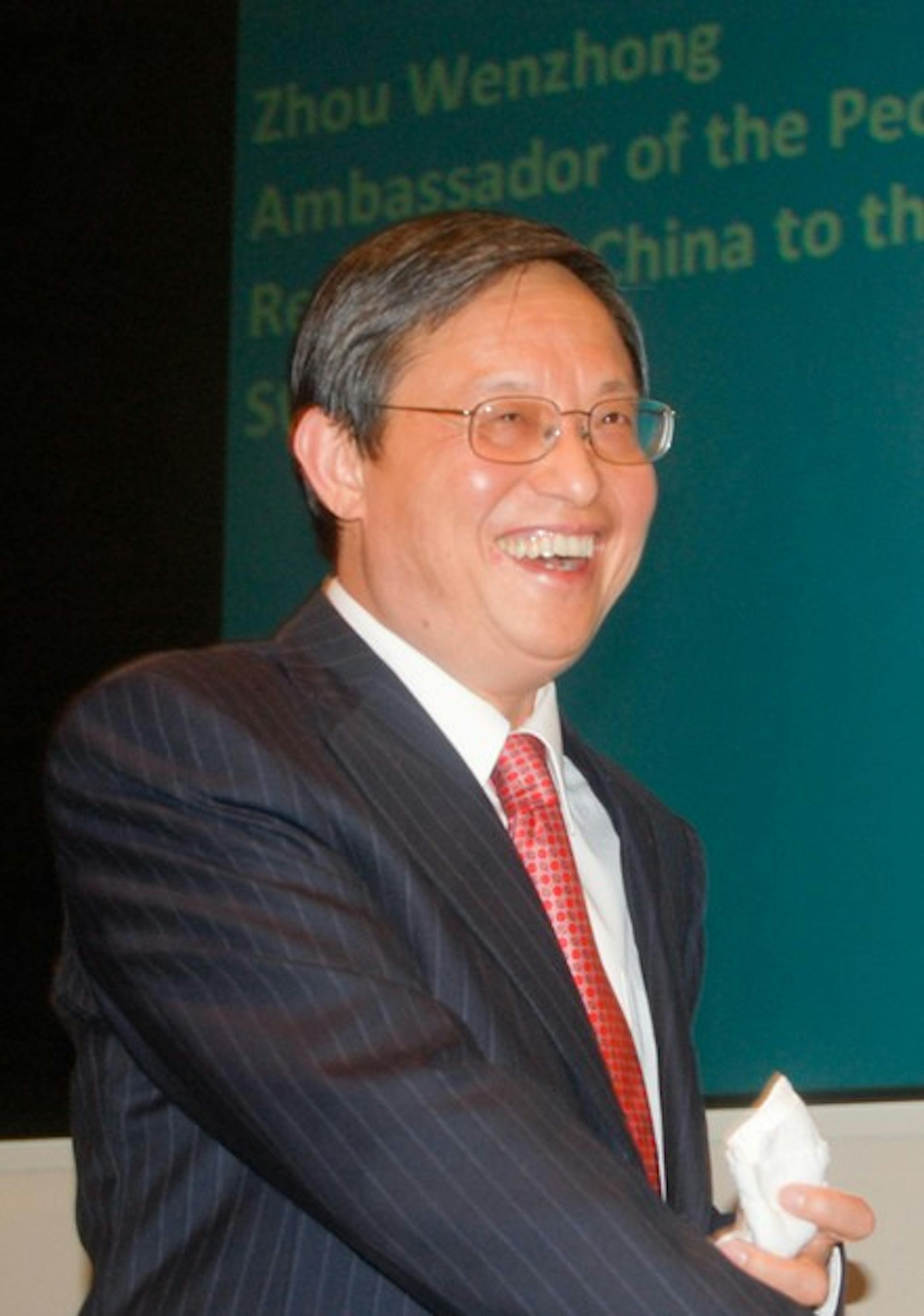Zhou framed the speech as marking the 30th anniversary of Chinese-American trade relations and the decades of prosperity that grew from China's decision to engage in world trade.
"Economic and social progress has been enormous," Zhou said, citing increased life-expectancy, annual growth rates averaging more than 9 percent and a tenfold increase in per-capita Gross Domestic Product among other improvements to quality of life in China.
Zhou said he supported his government's policies regarding issues that have recently been contentious between China and the United States, including Tibet, Taiwan and internet regulation.
"Tibet has been part of China for hundreds of years, and the affairs of Tibet are China's internal affairs," he said, accusing the Dalai Lama of trying to split China's territory and calling on him to end his campaign for Tibetan independence.
Zhou also reiterated China's commitment to eventual reunification with Taiwan.
"The One China principle will remain unchanged," he said, referring to China's policy of pursuing a single government.
Zhou also spoke about the increase in internet use in China, but maintained the government's responsibility to control content.
"It should be regulated so the interest of the state and the interest of the user are protected," he said.
The Chinese government is committed to greater oversight and regulation of food and medicine, he said, a major concern within the United States.
Zhou emphasized the importance of the partnership between China and the United States in driving economic growth.
"The economics of our countries complement each other, resulting in rapid expansion and win-win trade," Zhou said.
Zhou applauded the use of bilateral agreements and economic frameworks in solving possible conflicts between the United States and China. He also said that Sino-American cooperation is essential for addressing non-traditional threats, such as terrorism.
In the future, Zhou said, China will continue to promote business investment by increasing efficiency, reducing bureaucracy and further opening the market.
"The government will ensure consistency and stability of policies regarding foreign investment," he said.
In order to facilitate this economic growth America in turn should end protectionist policies, he said.
"We want to buy more, but there are many things you just don't want to sell us," Zhou said, citing America's refusal to sell the Chinese government helicopters for civilian use.
Zhou also discussed the challenges that China will face in the future, including environmental degradation and the difficulty of bringing growth to rural areas. He noted that China's per-capita GDP trails that of other major trading powers, a sign that China still qualifies as a developing country.
"The socialist market economy, democracy and the rule of law still need improvement," he said.
Zhou added that one challenge the government has recently begun to focus on has been sustainable growth.
"We will make great efforts to balance economic growth and environmental protection," he said.
When asked about his thoughts on the 2008 U.S. presidential election, Zhou said he was optimistic, regardless of the outcome.
"Whoever the United States president is, China wants to maintain a productive relationship with the United States and to pursue our shared interest," he said.




